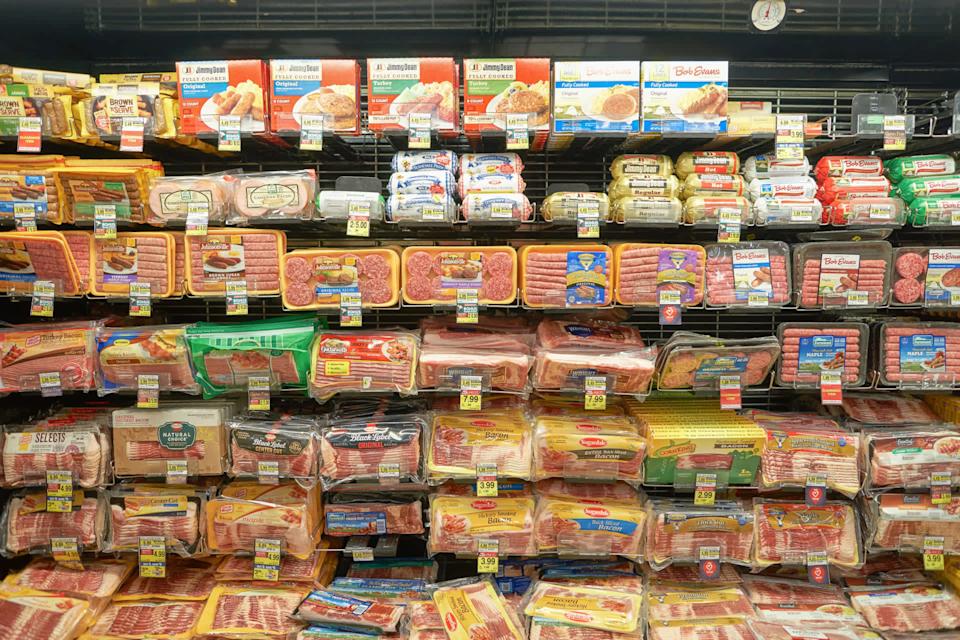One of the largest sausage makers in the U.S. issued a recall for one of its most popular bratwursts following reports that customers found plastic in the product.
What’s happening?
Johnsonville recalled over 22,000 pounds of cheddar bratwurst product that may be contaminated with hard plastic. The company alerted the U.S. Department of Agriculture’s Food Safety and Inspection Service after two customers reported “hard plastic material found in the bratwurst product.”
As a result, a Class l recall was issued to retail locations in Georgia, Indiana, Kansas, Kentucky, Michigan, Minnesota, Ohio, Tennessee, Virginia, and Wisconsin.
As noted in the recall announcement, the cheddar bratwurst product was produced on February 5, 2025. The “Johnsonville BRATS CHEDDAR Bratwurst” package is stamped with the establishment number “Est. 1647” on the front of the label.
Why is plastic found in food products concerning?
According to the U.S. Food and Drug Administration, a Class l recall is issued in situations “in which there is a reasonable probability that the use of or exposure to a violative product will cause serious adverse health consequences or death.”
In the case of the Johnsonville recall, no injuries have been reported. However, the FSIS urged that anyone concerned about an injury should contact their nearest health care provider.
Watch now: Your favorite sushi might be threatened by climate change
The FSIS also noted that there is concern that some of the bratwurst “may be in consumers’ freezers,” the announcement reads. “Consumers who have purchased these products are urged not to consume them. These products should be thrown away or returned to the place of purchase.”
According to a report by Fortune, recalls due to plastic contamination in food were at a five-year high in 2024. In March 2024, grocery chain Trader Joe’s recalled more than 61,000 pounds of steamed chicken soup dumplings after receiving reports of possible plastic particle contamination from a permanent marker.
Outside of becoming potential choking hazards, plastic contamination in food could increase potential health risks. While more research is needed, health risks associated with microplastic exposure include endocrine disruption, inflammation, and damage to the digestive and reproductive systems.
What’s being done about plastic contamination in food?
Many countries have sought to minimize the abundance of plastic in food and food packaging. In 2021, Senator Jeff Merkley introduced the Break Free From Plastic Pollution Act of 2021 to “prevent pollution from consumer products and packaging from entering into animal and human food chains and waterways, and for other purposes.”
|
Should grocery stores donate food that’s past its sell-by date? Only if it doesn’t cost the store No — it could lead to problems Click your choice to see results and speak your mind. |
In 2024, the European Parliament introduced additional measures designed to “make packaging more sustainable and reduce packaging waste in the EU.” The regulation aims to ban certain single-use plastic packaging types by January 2030.
For now, food recalls remain an effective solution to limiting the potential harm of plastic contamination in food products. The FDA keeps a detailed database of recent recalls of food and drug products that can be helpful for consumers.
Join our free newsletter for easy tips to save more and waste less, and don’t miss this cool list of easy ways to help yourself while helping the planet.
Yahoo News – Latest News & Headlines
Read the full article .


